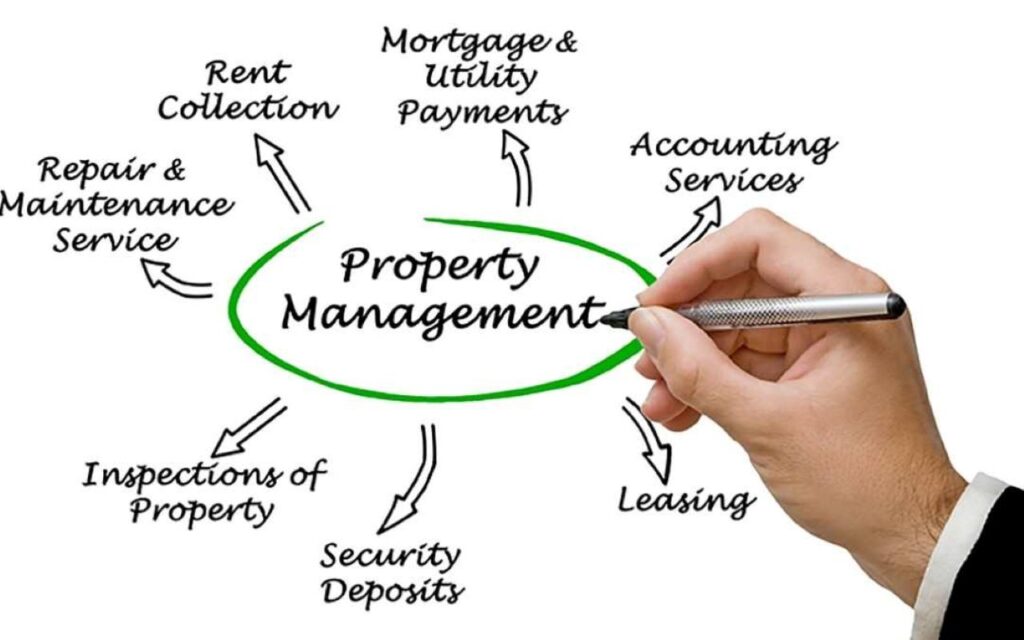The real estate industry can be a complex labyrinth and requires a handful of property management tips to enjoy success. From maintaining the property to interfacing seamlessly with tenants, there is a thing or two to learn from brokers who know the ropes.

The real estate industry is undoubtedly ripe for huge investment returns thanks to recent housing shortages. However, you can still have an uncontestable edge by adopting the property management tips discussed in this piece. So, come along and grab the keys to success in property management.
1. Delegate Tedious and Repetitive Tasks
Leverage young and aspiring talents in your organizing to delegate tedious and repetitive tasks. If those extra hands are unavailable, consider outsourcing such mundane tasks entirely.

You could get a virtual assistant to handle all your communications with tenants. Such an initiative may become inevitable if you have several properties in your portfolio. So, tasks like rent collection, landlord-tenant communication, and financial reporting can be outsourced to free up more time for scaling.
ALSO READ: House Guest? Wow Your Hosts with these 10 Important Etiquette Hacks
2. Work With Concrete Goals and Long-Term Strategies
Earning tangible revenue and scaling a property management career requires setting concrete goals and having a phased long-term strategy. As applicable to any other business, property management requires a game plan that considers the birdseye prospects.

So, your long-term game plan will help determine the marketing strategies being adopted at each stage of the business development. Similarly, it becomes a pivotal determinant of the property types you prospect as a real estate investor.
3. Set Competitive Rents
It is always essential to stay abreast of rent-fixing practices among fellow landlords in and around your locale. Before signing lease agreements, most tenants weigh their odds by considering the amenities their property affords and the proposed rent.

Hunt for that juicy rate before fixing the rent for your property. Make it high enough to make you some cool profit and low enough to give your property a competitive edge among similar alternatives. Property valuation may be necessary to determine rent. However, endeavor to take off the legalistic binoculars and examine the housing market in that area for what it is.
4. Do Necessary Due Diligence With Bookkeeping
When the money starts flowing in, track all the business’s finances. For example, maintaining a proper record of maintenance scheduling and its cost is essential. Similarly, the income from rent collection should be determined.

All those monetary metrics in your financial reporting will help determine how profitable the business is and whether it has tangible equity. Also, some states make it statutory to set up an escrow account for rent collection on each property in your portfolio. Irrespective of the legal compliance instituted on rent collection, at the very least, it is advisable to open a separate account for each property in a portfolio. Doing this makes balancing the accounts and financial reporting very easy.
5. Maintain Effective and Timely Communication With Tenants
There are several instances where tenants default on their rent payments simply because they do not have a healthy relationship with their landlords. However, it is a no-brainer that the landlord-tenant communication can be primed right from the point of initial engagement. Here’s what we mean: during the tenant screening, it is essential to assess the financial capabilities of a potential tenant and subtle indications of their preferred mode of communication.

As far as effective communication with tenants is concerned, here are some property management tips we want to proffer:
- Listen actively to your tenant’s concerns.
- Avoid communication breakdown by ensuring they know the reliable channels to reach you.
- Communicate your expectations concerning property maintenance.
- When it becomes necessary to change some rule, policies, or lease agreements give them a prior notice and discuss its implications.
6. Have Property Inspections and Maintenance Scheduling in Place
Conducting unannounced property inspections on rented properties is never advisable and may even be unlawful. Likewise, when giving notice of an impending inspection, give enough lag time for the tenant to prepare. This keeps the landlord-tenant relationship cordial and sends the message that you are both on the same team.

Finding quality tenants is hard enough, so you don’t want to throw them away after all the trouble of tenant screening.
ALSO READ: 8 Signs a House Will Be High-Maintenance
7. Upskill With Professional Certifications and Training
We don’t doubt your wealth of experience in the real estate industry. However, it is always a worthy investment to attend training and obtain professional certifications that expose you to the best practices in the industry.

Most of such trainings teach you the latest property management tips like effective marketing strategies, property valuation, legal compliance, and finding quality tenants.
These seven property management tips are stepping stones to a profitable, stress-free real estate business. Adopt them and thank us later for the outcome.
